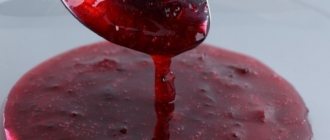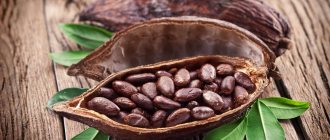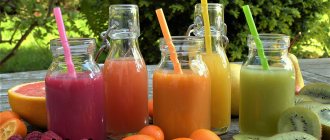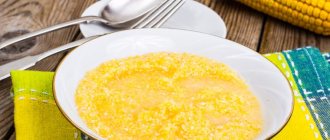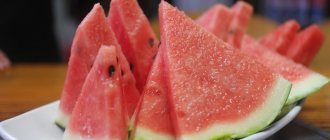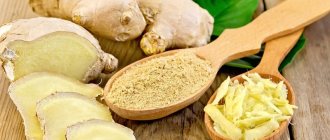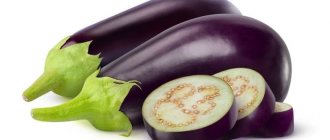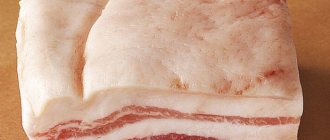A dilemma that has haunted people for a long time - is it possible or not? And we will talk about drinking wine during lactation and breastfeeding.
Breastfeeding directly affects the health of the baby and its further development. Everything that is in the mother’s body enters the baby’s body with milk. Wine is no exception; it is an alcoholic drink, and its influence depends not only on the degree (although this is a very important factor). Even medications containing a small percentage of alcohol are contraindicated during breastfeeding. Does this mean that wine is strictly prohibited for a nursing mother?
Alcohol content in blood and breast milk
Due to the structural features of the female body, alcohol-containing drinks are absorbed into the blood very quickly and excreted extremely slowly. The period of ridding the body of alcohol depends on several factors, such as the woman’s weight, the volume of the drink consumed, and its quality. The lighter the lady, the faster the alcohol acts. And the greater the volume of alcohol consumed, the longer it will take to cleanse the body of alcohol.
Depending on the mother’s body, about 10-15% of the alcohol she consumed will end up in breast milk. For example, for all the alcohol to come out after 1 glass of wine, it will take about 3-4 hours, and even longer if the weight is low.
The baby is still very weak and not yet fully ready for the conditions of the outside world, which is new to him. The protective functions are just beginning to develop; the baby’s liver is not yet able to cope with even small doses of alcohol. A baby under 3 months will need significantly more time to cope with alcohol toxins than an adult.
All mothers should remember that the toxicity of alcoholic beverages can cause allergies, colic and other digestive disorders. Alcohol can cause severe nausea in the body, and fatal cases have been reported. Negative effects of alcohol:
- 1. Alcohol changes the taste and composition of breast milk, causing rejection and dissatisfaction for the little one. Often children in these cases completely refuse to breastfeed.
- 2. The presence of toxins in drinks leads to allergic reactions, bloating, cramps and poisoning of the child’s body. Alcohol negatively affects the functioning of the central nervous system, sometimes causing sleep problems.
- 3. Ethyl alcohol damages the absorptive layer of the stomach, which leads to acute pain, nausea and lack of appetite.
- 4. Alcohol causes arrhythmia, weakness, and lowers blood pressure in the baby.
- 5. Alcohol disrupts the ability to concentrate and slows down the production of the lactation hormone (oxytocin). An increase in drinking volume is directly proportional to a decrease in the amount of breast milk.
- 6. The reactions of the mother and child's body slow down.
For women who know their passion for alcoholic beverages, drinking is strictly not recommended. Even a small amount of alcohol in medications can lead to a breakdown. Such ladies need to remember: it is strictly forbidden to feed a baby while heavily intoxicated. If a mother experiences dizziness, nausea or drowsiness from an alcohol-containing drink, the same symptoms are possible in the baby as a result of feeding her milk. Unlike the mother, this will be a severe poisoning for the baby.
Time for elimination of alcohol from the body and breast milk
It is very important to know how long after drinking wine you can feed your baby. Alcohol remains in breast milk as long as it remains in the blood. The time it takes to cleanse the body of alcohol depends on the woman’s build, weight and metabolic rate, the amount drunk, and the strength of the drink.
Typically, a glass of wine (approximately 150 ml) is eliminated from the body in about 2.5 – 3 hours. The higher the dose, the longer it will take. At the same time, sleep, food, drinking plenty of water, walking in the fresh air, showering, and physical exercise have no effect on reducing the level of alcohol in the blood.
Since during the breastfeeding period the feeding regimen is individual for each baby, the mother herself decides how much wine she can drink if she is not going to miss the next feeding. However, if you are not sure that the alcohol will leave the body by the right time, then it is better to use pre-expressed milk or use formula (if the baby is mixed-fed).
Preparing for the holidays
The time has come for a family celebration, an anniversary event, or for some other reason the nursing mother decided to allow herself to drink a certain dose of alcohol. A woman should prepare in advance, purchase an adapted infant formula or organize feeding her baby with expressed milk. It is strictly prohibited to put your baby to the breast for about 7 hours from the last time you took alcohol.
Can a nursing mother have wine? To prevent a glass of alcohol during the holiday from harming your baby, you must adhere to the following rules:
- 1. Stock up on expressed breast milk in advance. Give your child high-quality milk while the body processes ethyl alcohol.
- 2. The baby should be fed before the feast.
- 3. Buy baby formula in case it is impossible to stock up on your own milk.
- 4. Eat plenty and quality snacks. Before the holiday, have a snack so as not to drink wine on an empty stomach. Avoid foods that can cause any allergies in your child.
- 5. It is worth continuing feeding after a certain time. For example, if 2 standard glasses of wine were drunk, then after 6-7 hours the body will completely eliminate the resulting alcohol.
- 6. Strictly monitor the quality of the wine you accept, check its manufacturer, excise stamp, expiration date (in the modern world, gadget owners have many opportunities to do this through a special application).
- 7. To avoid stagnation of milk and the development of mastitis, do not forget to express. But after this, the milk is not suitable for consumption and is disposed of. The last pumping should be done 5-6 hours after drinking wine.
From glass to milk
The absorption process begins in the oral cavity, continues in the stomach and large intestine, seeping through the mucous membrane, although the bulk of the substance enters the bloodstream from the small intestine. Further along the bloodstream it spreads to tissues and organs, penetrating biological fluids, including breast milk. The whole process will take no more than 10-15 minutes.
The concentration of alcohol in blood and milk is approximately equal, up to 10% of the amount drunk. The most important factors influencing this figure are:
- consumed on an empty or full stomach;
- quantity and alcohol content;
- mother's weight.
The question immediately arises, is it possible to drink wine while breastfeeding?
The answer is clear: the presence of alcohol is harmful for a baby, since his internal organs (namely the liver, which diligently removes toxins from the body) are not ready for such a load, which can lead to serious consequences. Children under three months of age are especially sensitive.
Red or white?
It is generally accepted that red wine made from high-quality raw materials is much healthier than white wine. Red grape wine contains a huge amount of important minerals and nutrients, such as B vitamins, magnesium, potassium, phosphorus and others. They are also present in white, but in the lowest concentration. The shell of grape berries, which is a component for the process of fermentation and fermentation of red wine, as well as grape seeds contain a large amount of flavonoids, one of them is quercetin. This substance helps relieve swelling, spasms, inflammation and has an antiallergic effect. Flavonoids are powerful antioxidants that trap free radicals and bind them, preventing them from damaging cells. Tannins in red wine have tanning properties, so wine is a good antiseptic for the gastrointestinal tract.
But against the backdrop of remarkable beneficial properties, we should not forget that, first of all, red wine during breastfeeding is alcohol, which doctors do not recommend to a nursing woman. Alcohols, found even in the highest quality and most expensive drinks, do not have beneficial properties, and ethanol in minimal doses can cause nausea, hot flashes, weakness, and drowsiness.
Is it possible to drink wine while breastfeeding?
Answering the question of mothers whether it is possible to drink wine while breastfeeding, pediatricians emphasize that even a minimal portion of red or white alcohol can have serious negative consequences for the baby’s health.
- A glass of wine while breastfeeding makes the taste of mother's milk more bitter - this significantly increases the risk of the baby refusing to breastfeed.
- Ethyl alcohol contains a huge amount of toxic compounds that have an aggressive effect on the baby’s nervous system. This can lead to nervousness, tearfulness, and sleep disturbances.
- The breakdown of ethanol puts increased stress on the baby's fragile liver and digestive system. This is often accompanied by nausea, bouts of vomiting, and stool upset.
- A large amount of alcohol in breast milk impairs brain function - the child becomes lethargic, apathetic, has slow development, inhibited reactions and motor reflexes.
- Under the influence of ethanol, the functioning of the cardiovascular system is disrupted and tachycardia develops.
Considering the harm from alcoholic beverages, each mother must decide for herself whether wine can be consumed while breastfeeding.
Many women opt for so-called non-alcoholic wines. The zero alcohol content in such products is nothing more than a marketing ploy. Like classic alcohol, they are produced using fermentation technology, which ensures a minimum concentration of ethyl alcohol. In non-alcoholic products it is contained in dosages of up to 0.5-1%.
Non-alcoholic wine
For modern people, the phrase “non-alcoholic wine” sounds implausible. Wine is formed through fermentation. This process occurs due to the reaction of sugar and yeast in the drink. If there is no fermentation process, then it is compote, juice or decoction.
The principle of producing non-alcoholic grape wine is no different from the production of regular wine, but at the last stage the alcohol is removed. There are 2 ways to remove alcohol from wine - freezing it (under prolonged exposure to cold, the alcohol evaporates) and heat treatment (by sharply increasing the temperature, the alcohol also evaporates).
After the alcohol disappears, the taste of the wine changes a little, but not much; the feeling remains that it is really wine, and not compote or juice. The undoubted advantage of non-alcoholic wine is its low sugar content.
Despite all the wonderful properties and qualities, wine with a low alcohol content has negative aspects. This applies to cheap wine brands. It is economically beneficial to include various antioxidants and flavorings in the composition of the wine material. To enhance the taste and change the shelf life, phytohormones are added to the drink, which are harmful to both men and women.
Non-alcoholic wine has become a wonderful alternative for people who, for some medical or other reasons, are prohibited from drinking alcohol. Among them, pregnant women occupy a special group. Is it possible to drink wine while breastfeeding? There is no clear opinion; some believe that a low alcohol content will not entail consequences for either the mother or the child. If you carefully weigh the pros and cons, then you should stop drinking alcohol in any quantity, but you should also take into account the psychological factor, in which sometimes a weak soul asks for an indulgence. There are no absolute contraindications regarding the consumption of non-alcoholic wine during pregnancy, but it would still be better not to overdo it, but to limit yourself to a small portion during the holiday. It is worth paying attention to the fact that doctors allow you to drink non-alcoholic wine for more than 12 weeks, if there are no complications during pregnancy.
A good alternative to wine would be diluted natural pomegranate juice or just homemade dried fruit compote, fruit juice or mineral water with a low carbon dioxide content and a low level of mineralization.
Is there any benefit from wine during breastfeeding for a nursing mother or a newborn?
Regarding whether breastfeeding mothers can have a glass of wine, doctors' opinions are divided. Some believe that a small amount of a good, natural product will not cause any harm to either the mother or the newborn.
Beneficial features:
- one glass of wine has a positive effect on the functioning of the cardiovascular system, strengthens the walls of blood vessels;
- improves the functioning of the nervous system, reduces the negative effects of stress;
- has an antiseptic effect on the oral cavity, fights pathogenic microorganisms;
- natural red wine is considered effective in preventing cancer.
Other doctors are absolutely sure that the benefits of wine during natural feeding are negligible in comparison with the harmful effects it has on the health of the newborn. Therefore, every mother must decide for herself whether it is possible to drink red wine while breastfeeding.
Allergies are also possible
High-quality wine, in the production of which various flavorings and yeast are not used, often does not cause any allergic reactions in a healthy body. Currently, in pursuit of quick profits and popularity, wine producers use various preservatives and synthetic additives, which has an extremely negative impact on the consumer. Impurities in wine make it the most allergenic of all alcohol-containing products.
Drinking a glass of red wine affects the blood vessels, their tone changes, and blood flow is activated. At the same time, wine can increase food allergic reactions to consumed foods, such as fish, nuts, cheese, fruits, etc.
Young wine often contains a small amount of wine blossom (yeast mold). It is not possible to taste it or see it by the color and consistency of the wine without special devices. Mold is often found in red wines, and when it enters the body, it causes allergy symptoms.
The drink also contains wasp venom - a strong allergen that poses a great threat to the body. During the fermentation of wine, wasps are pressed along with the raw materials and sometimes end up in bottles, because the grapes exude a sweet aroma that attracts them. Only young wines cause concern, since the poison loses its properties over time, so its presence in aged wines is excluded.
Women's and children's alcoholism is a very big problem. There are regulatory government bodies struggling with the consequences of this terrible phenomenon. But the main protector and controller is the child’s mother and family. Attitudes towards alcohol and various other habits are formed and instilled at home. Raising a child begins when you find out about pregnancy.
Alcohol content in blood and breast milk
Due to the structural features of the female body, alcohol-containing drinks are absorbed into the blood very quickly and excreted extremely slowly. The period of ridding the body of alcohol depends on several factors, such as the woman’s weight, the volume of the drink consumed, and its quality. The lighter the lady, the faster the alcohol acts. And the greater the volume of alcohol consumed, the longer it will take to cleanse the body of alcohol.
Depending on the mother’s body, about 10-15% of the alcohol she consumed will end up in breast milk. For example, for all the alcohol to come out after 1 glass of wine, it will take about 3-4 hours, and even longer if the weight is low.
The baby is still very weak and not yet fully ready for the conditions of the outside world, which is new to him. The protective functions are just beginning to develop; the baby’s liver is not yet able to cope with even small doses of alcohol. A baby under 3 months will need significantly more time to cope with alcohol toxins than an adult.
All mothers should remember that the toxicity of alcoholic beverages can cause allergies, colic and other digestive disorders. Alcohol can cause severe nausea in the body, and fatal cases have been reported. Negative effects of alcohol:
- 1. Alcohol changes the taste and composition of breast milk, causing rejection and dissatisfaction for the little one. Often children in these cases completely refuse to breastfeed.
- 2. The presence of toxins in drinks leads to allergic reactions, bloating, cramps and poisoning of the child’s body. Alcohol negatively affects the functioning of the central nervous system, sometimes causing sleep problems.
- 3. Ethyl alcohol damages the absorptive layer of the stomach, which leads to acute pain, nausea and lack of appetite.
- 4. Alcohol causes arrhythmia, weakness, and lowers blood pressure in the baby.
- 5. Alcohol disrupts the ability to concentrate and slows down the production of the lactation hormone (oxytocin). An increase in drinking volume is directly proportional to a decrease in the amount of breast milk.
- 6. The reactions of the mother and child's body slow down.
For women who know their passion for alcoholic beverages, drinking is strictly not recommended. Even a small amount of alcohol in medications can lead to a breakdown. Such ladies need to remember: it is strictly forbidden to feed a baby while heavily intoxicated. If a mother experiences dizziness, nausea or drowsiness from an alcohol-containing drink, the same symptoms are possible in the baby as a result of feeding her milk. Unlike the mother, this will be a severe poisoning for the baby.
Preparing for the holidays
The time has come for a family celebration, an anniversary event, or for some other reason the nursing mother decided to allow herself to drink a certain dose of alcohol. A woman should prepare in advance, purchase an adapted infant formula or organize feeding her baby with expressed milk. It is strictly prohibited to put your baby to the breast for about 7 hours from the last time you took alcohol.
Can a nursing mother have wine? To prevent a glass of alcohol during the holiday from harming your baby, you must adhere to the following rules:
- 1. Stock up on expressed breast milk in advance. Give your child high-quality milk while the body processes ethyl alcohol.
- 2. The baby should be fed before the feast.
- 3. Buy baby formula in case it is impossible to stock up on your own milk.
- 4. Eat plenty and quality snacks. Before the holiday, have a snack so as not to drink wine on an empty stomach. Avoid foods that can cause any allergies in your child.
- 5. It is worth continuing feeding after a certain time. For example, if 2 standard glasses of wine were drunk, then after 6-7 hours the body will completely eliminate the resulting alcohol.
- 6. Strictly monitor the quality of the wine you accept, check its manufacturer, excise stamp, expiration date (in the modern world, gadget owners have many opportunities to do this through a special application).
- 7. To avoid stagnation of milk and the development of mastitis, do not forget to express. But after this, the milk is not suitable for consumption and is disposed of. The last pumping should be done 5-6 hours after drinking wine.
Red or white?
It is generally accepted that red wine made from high-quality raw materials is much healthier than white wine. Red grape wine contains a huge amount of important minerals and nutrients, such as B vitamins, magnesium, potassium, phosphorus and others. They are also present in white, but in the lowest concentration. The shell of grape berries, which is a component for the process of fermentation and fermentation of red wine, as well as grape seeds contain a large amount of flavonoids, one of them is quercetin. This substance helps relieve swelling, spasms, inflammation and has an antiallergic effect. Flavonoids are powerful antioxidants that trap free radicals and bind them, preventing them from damaging cells. Tannins in red wine have tanning properties, so wine is a good antiseptic for the gastrointestinal tract.
Non-alcoholic wine
For modern people, the phrase “non-alcoholic wine” sounds implausible. Wine is formed through fermentation. This process occurs due to the reaction of sugar and yeast in the drink. If there is no fermentation process, then it is compote, juice or decoction.
The principle of producing non-alcoholic grape wine is no different from the production of regular wine, but at the last stage the alcohol is removed. There are 2 ways to remove alcohol from wine - freezing it (under prolonged exposure to cold, the alcohol evaporates) and heat treatment (by sharply increasing the temperature, the alcohol also evaporates).
After the alcohol disappears, the taste of the wine changes a little, but not much; the feeling remains that it is really wine, and not compote or juice. The undoubted advantage of non-alcoholic wine is its low sugar content.
Despite all the wonderful properties and qualities, wine with a low alcohol content has negative aspects. This applies to cheap wine brands. It is economically beneficial to include various antioxidants and flavorings in the composition of the wine material. To enhance the taste and change the shelf life, phytohormones are added to the drink, which are harmful to both men and women.
Non-alcoholic wine has become a wonderful alternative for people who, for some medical or other reasons, are prohibited from drinking alcohol. Among them, pregnant women occupy a special group. Is it possible to drink wine while breastfeeding? There is no clear opinion; some believe that a low alcohol content will not entail consequences for either the mother or the child. If you carefully weigh the pros and cons, then you should stop drinking alcohol in any quantity, but you should also take into account the psychological factor, in which sometimes a weak soul asks for an indulgence. There are no absolute contraindications regarding the consumption of non-alcoholic wine during pregnancy, but it would still be better not to overdo it, but to limit yourself to a small portion during the holiday. It is worth paying attention to the fact that doctors allow you to drink non-alcoholic wine for more than 12 weeks, if there are no complications during pregnancy.
A good alternative to wine would be diluted natural pomegranate juice or just homemade dried fruit compote, fruit juice or mineral water with a low carbon dioxide content and a low level of mineralization.
How to make wine leave the body faster?
There are no special methods for quickly removing wine from the body intended specifically for nursing women. Moms can use regular detox products to reduce ethanol concentrations.
- White or activated carbon is an effective, affordable and safe means for cleansing the gastrointestinal tract from breakdown products of ethyl alcohol and toxic compounds. These tablets based on natural ingredients are approved for use during pregnancy and breastfeeding. The dosage is calculated individually, depending on body weight - 1 carbon tablet per 10 kg of weight.
- Enterosorbents and solutions for normalizing water-salt balance - these include Enterosgel and Regidron. They effectively cleanse the gastrointestinal tract from breakdown products of ethyl alcohol, restore normal moisture balance, and prevent intoxication of the mother and child.
- Drinking plenty of fluids helps to quickly cleanse the digestive system of toxins and toxic substances. An excellent option would be rosehip or chamomile infusion, black or green tea with lemon.
Wine during breastfeeding is a product that requires special care. A nursing woman is allowed to use it occasionally and in limited dosages, keeping in mind the possible negative consequences for the newborn’s body. Strict control will help you treat yourself to a glass of aromatic, natural drink on a holiday without exposing your baby’s health to the risk associated with the negative effects of ethanol.

